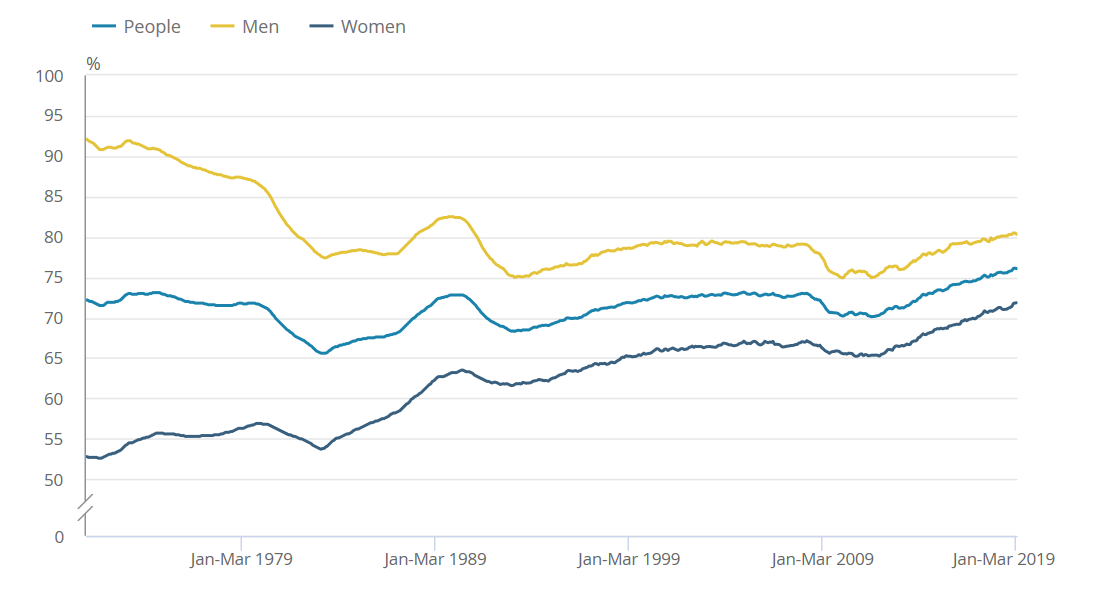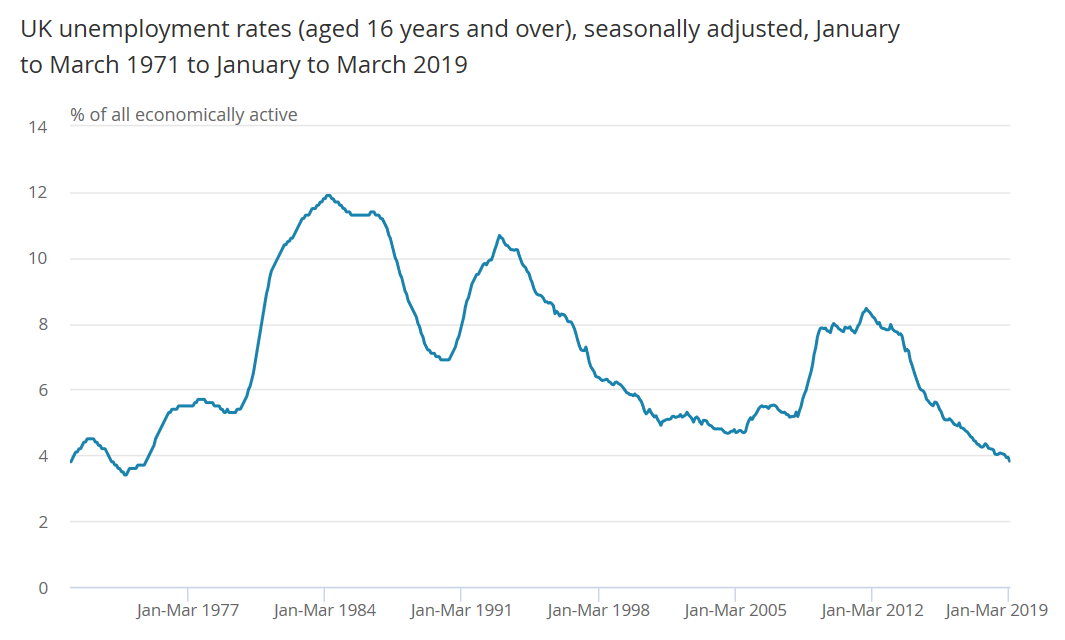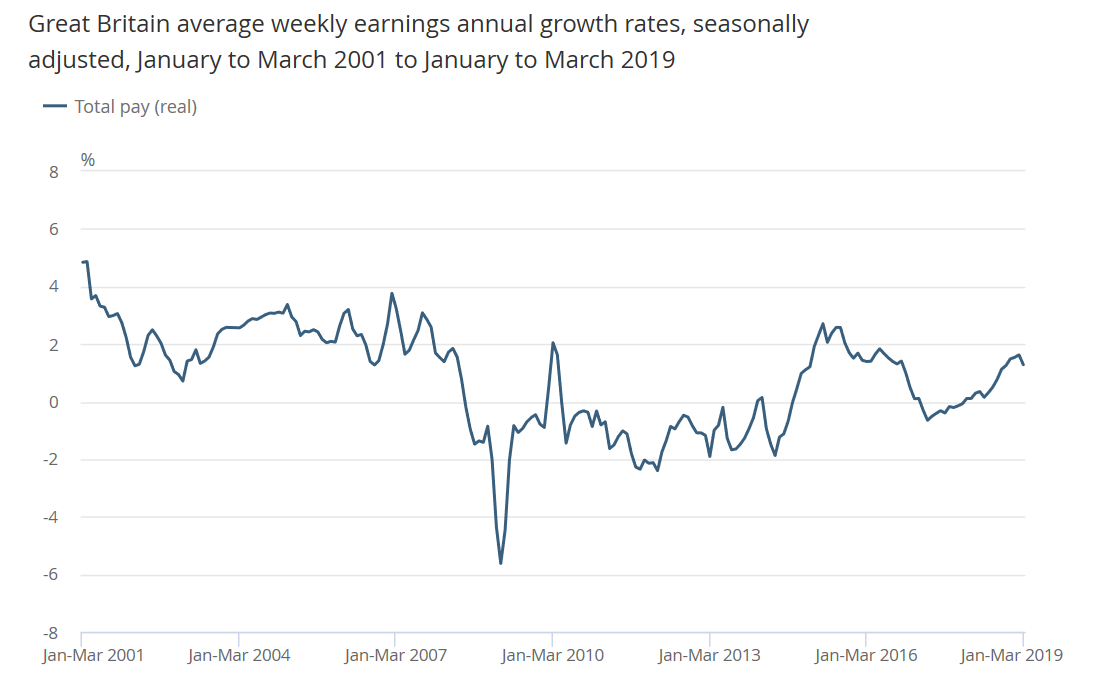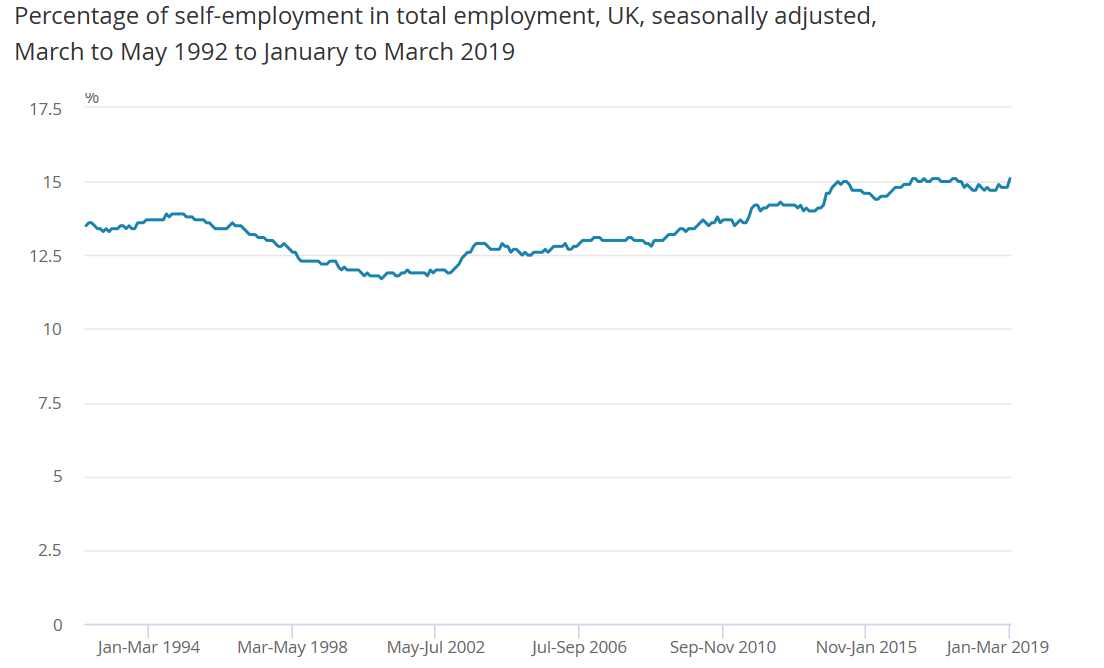At the end of March 2019, the employment rate for the United Kingdom was estimated at 76.1%, the joint- highest figure on record. The UK economic inactivity rate was estimated at 20.8%, again close to a record low.

The UK unemployment rate was estimated at 3.8% which is the lowest since December 1974. Unemployment measures people without a job who have been actively seeking work within the last four weeks and are available to start work within the next two weeks. The unemployment rate is the proportion of all employed and unemployed people (not the proportion of the total population) who are unemployed.

Wage growth lags
Including bonuses, average weekly earnings were estimated to have increased by 1.3% after adjusting for inflation, compared with a year earlier.

Self-employment soars
The number of self-employed workers reached a record high of 4.93 million. The number of self-employed people has been growing over time. A generation of people on the gig economy means a stable job and a stable income might become a thing of the past in the future.

Related:
The UK faces three immediate economic challenges irrespective of what happens with BrexitThe Real Economics of Brexit
Here are UK household spending insights
The UK’s net worth is now estimated at £10.2 trillion, an average of £155000 per person
This is how wealthy UK households are
UK households have seen their outgoings surpass their income for the first time in nearly 30 years
The UK economy a decade on from the 2008 recession
Nominal wages in the UK grew fastest in a decade but real wages are still lower than a decade ago